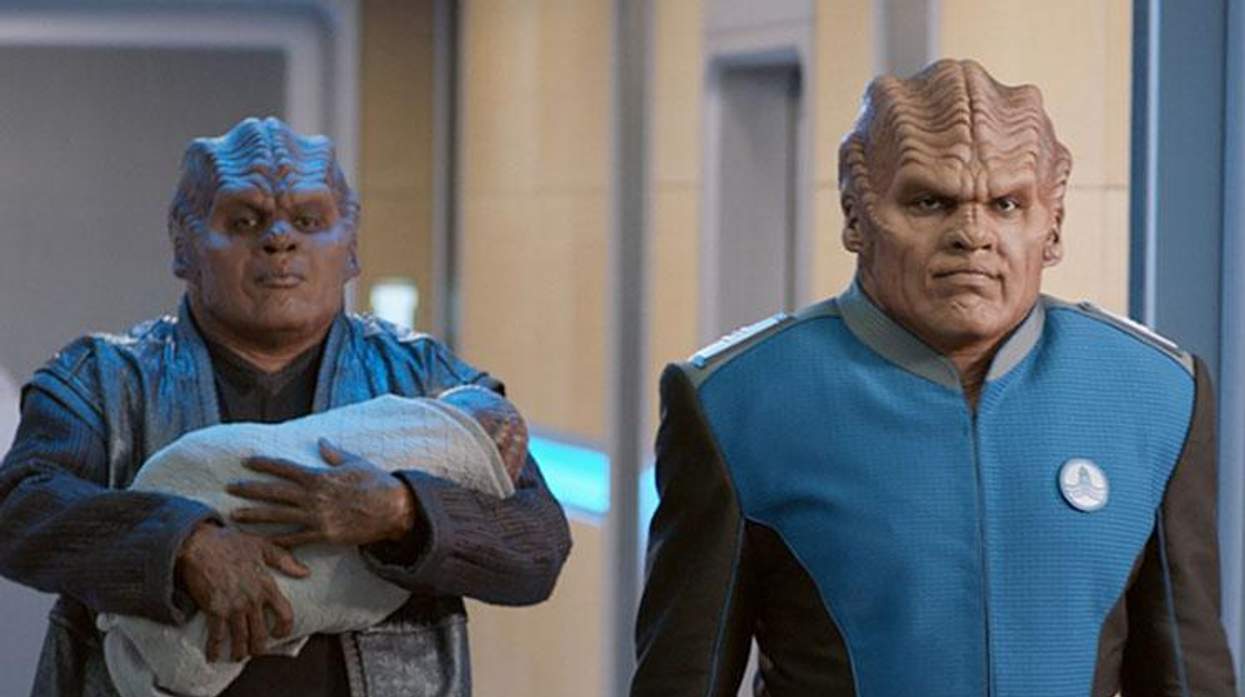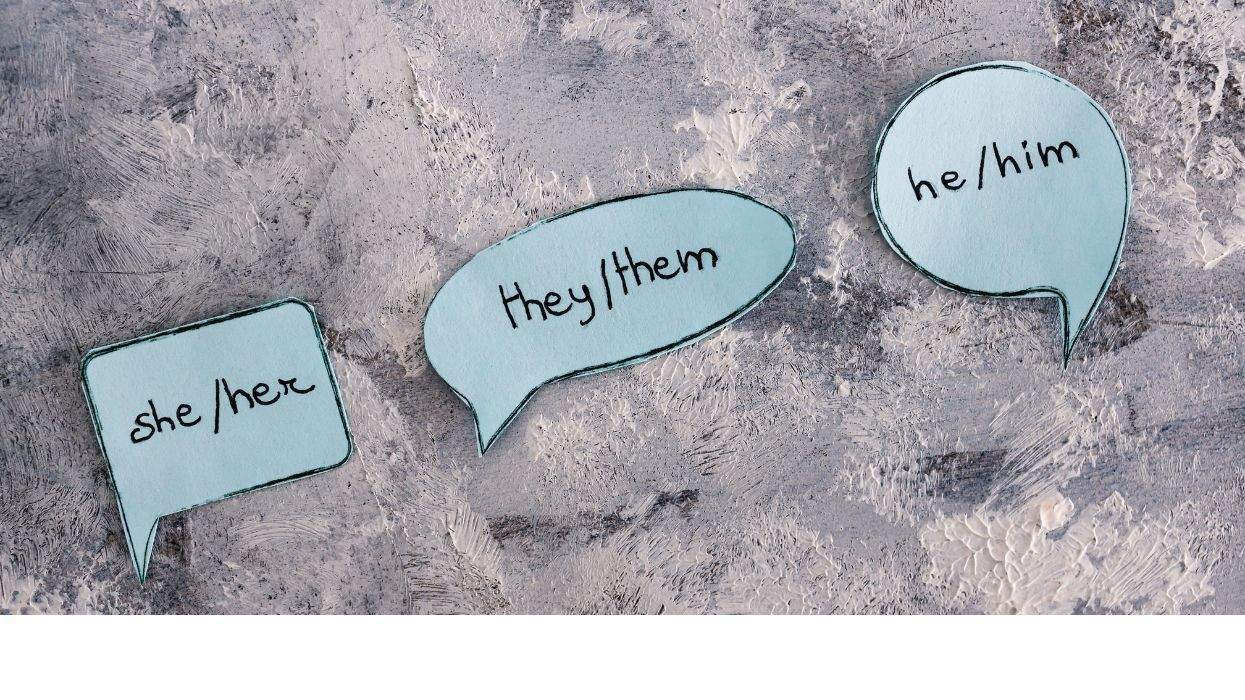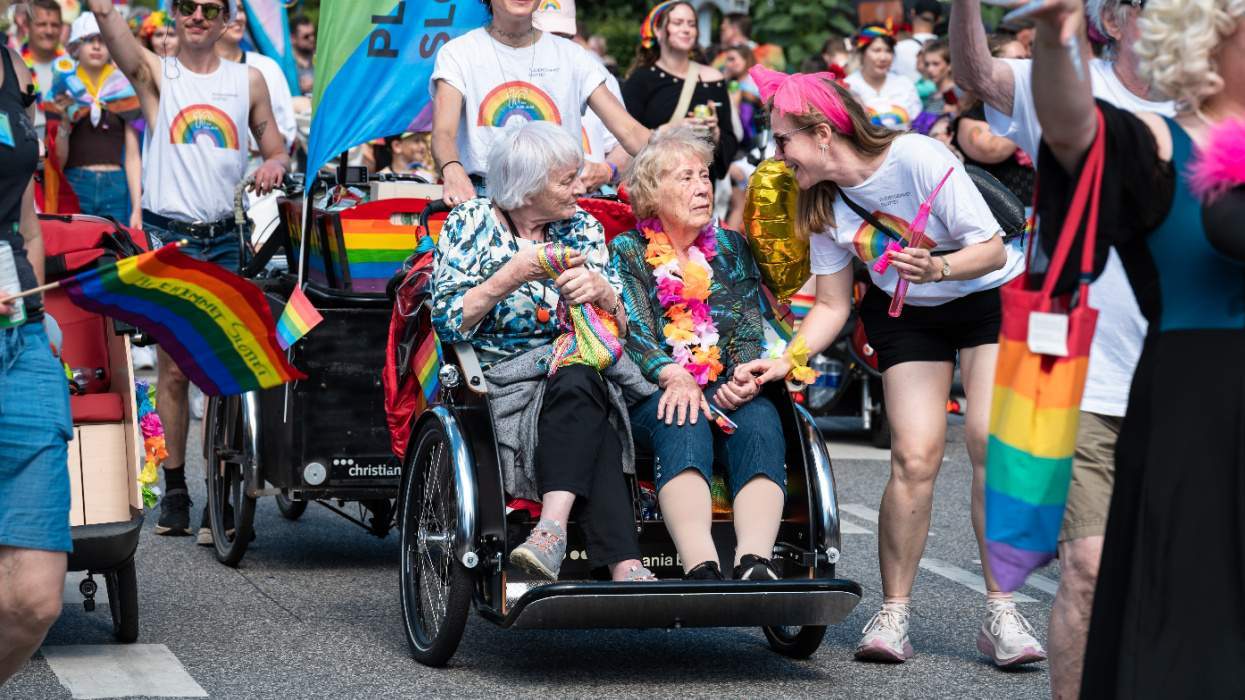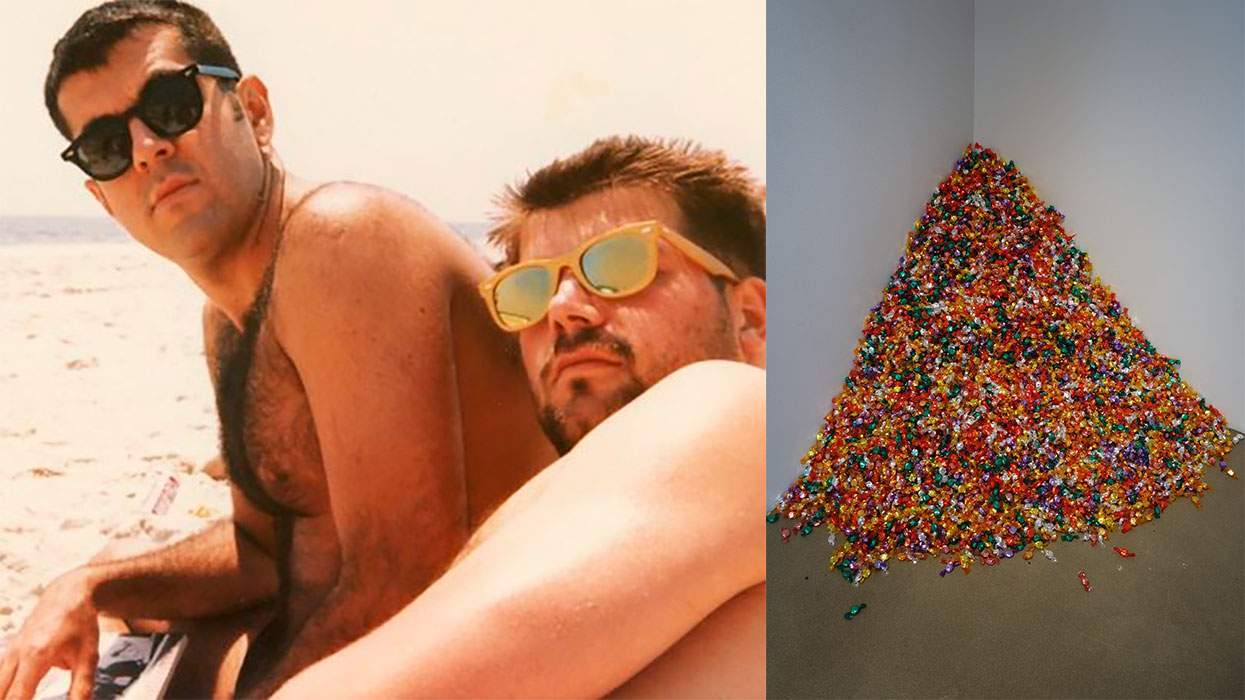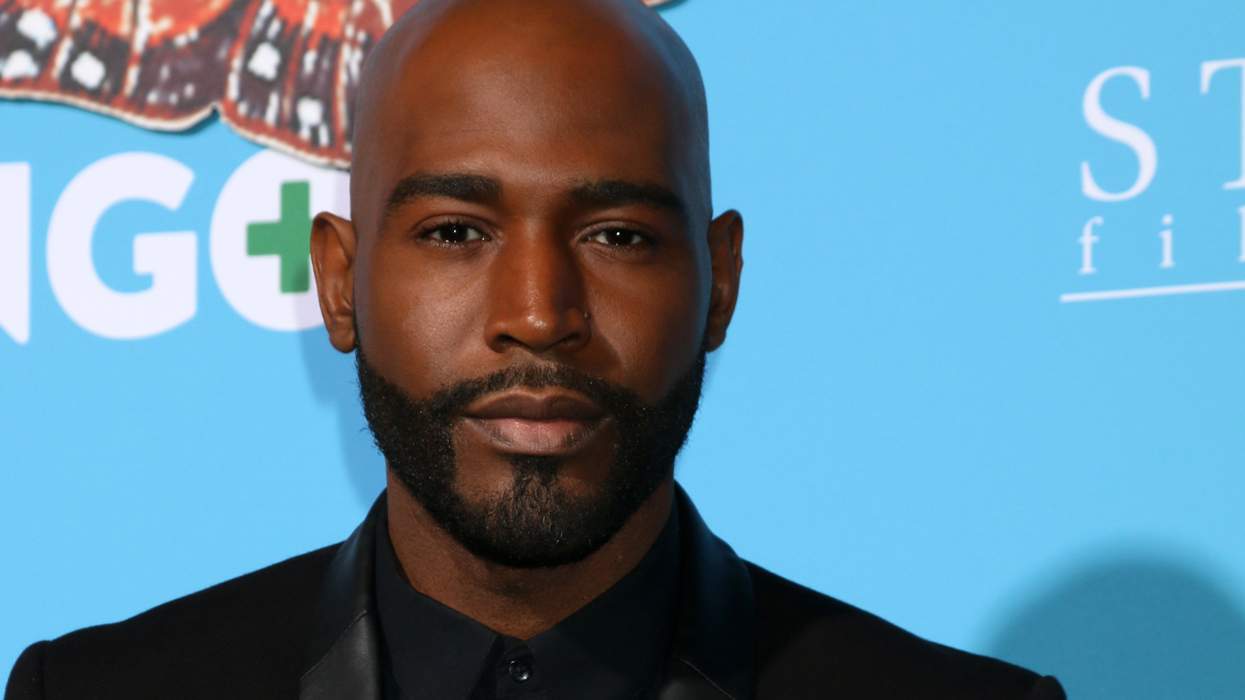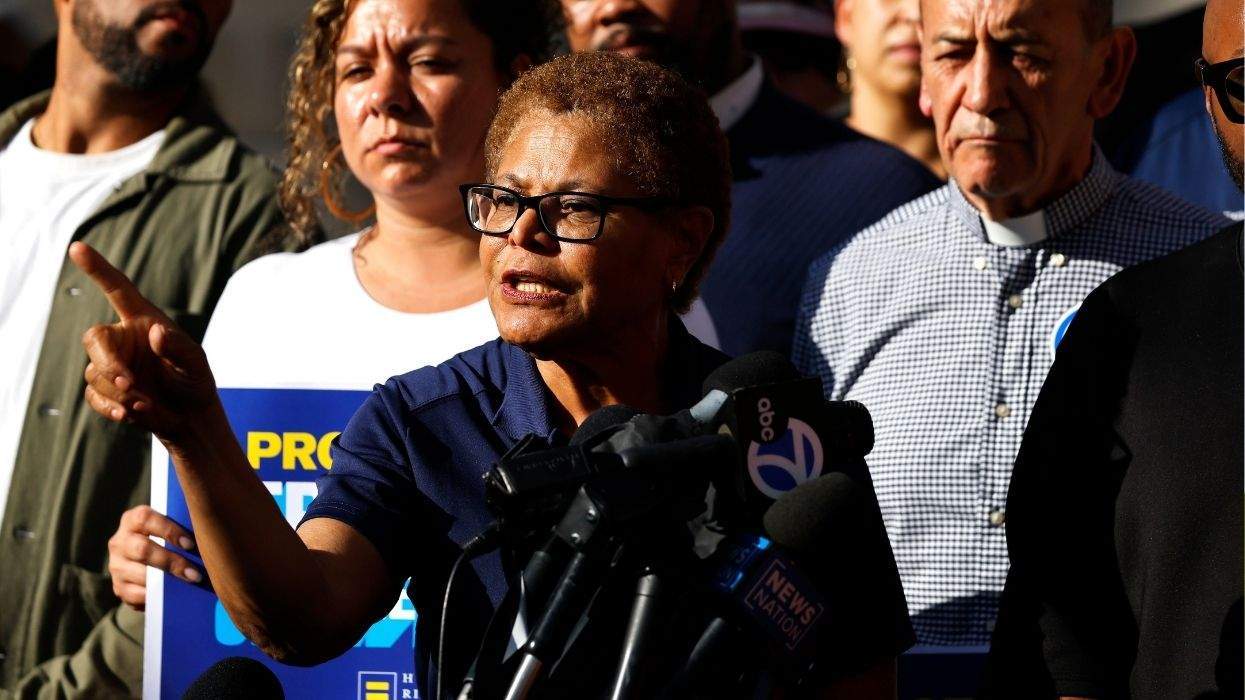Last week, Seth MacFarlane's Star Trek homage-parody TV show The Orville took on intersex and gender issues and the results were ... far from perfect.
In "About a Girl," second officer Bortus gives birth to a female child. Unfortunately, Bortus belongs to a male-only species, the Moclans, so he and his mate demand that a procedure be performed to change her sex. When Captain Ed Mercer, played by Seth MacFarlane himself, denies the request, the crew must defend the child's right to choose her gender in front of a Moclan tribunal.
The tribunal argues that a female will face gender prejudice within an all-male society, that she will not be able to be as successful, and, oh yes, women are weaker and less intelligent anyway. Despite proving women's equality to men in strength and intelligence, one of the parents reversing their opinion, and the crew finding proof within Moclan society that women can have productive lives, they are unable to block Moclan sexist prejudice. The procedure is performed anyway. The episode ends on a somber note, with Bortus and his mate promising to love their newly male child no matter what.
For better or worse, this marks Seth MacFarlane's first attempt at emulating the spirit of the original Star Trek franchise instead of just its aesthetic and tone. Star Trek has always been known for tackling major issues of the day, and it's clear that MacFarlane wants his show to follow in that vein, while hiding behind an extremely thin veneer of comedy and parody to lure in fans of MacFarlane's typically irreverent humor brand.
Reaction to MacFarlane's attempt has been extremely mixed, with many thinking he tried too hard and others arguing that he didn't try hard enough. The only thing that most critics agree on is that they didn't like MacFarlane's take.
On the one side, MacFarlane's approach is extremely heavy-handed. The characters spend most of the episode just going over talking points and making arguments for or against the gender change. The approach lacks nuance, even within the world itself. Bortus's change of opinion on gender issues comes from watching Rudolph the Red-Nosed Reindeer and understanding that a "birth defect" like being born a girl can actually be productive. This change of mind completely misses the point, that being a girl isn't a birth defect, but just goes for the quick and easy approach to get to what MacFarlane clearly wants to say.
Yet, on the other side, in the eyes of many critics, when actually trying to delve into the issues, MacFarlane also fails. The arguments play into many stereotypes of women versus men. The episode sometimes even confuses intersex and transgender concerns, which, while sometimes being related, are completely separate issues. To many, the episode feels like it might have been progressive 10 years ago but falls woefully short by today's standards.
For many of us in the LGBTQ and feminist community, much of MacFarlane's approach was woefully outdated. Yet we sometimes forget that this episode was not made for those who already know all about intersex and transgender issues.
The episode aired on prime-time television, a world that is still a barren wasteland devoid of any transgender and intersex representation. Many of the people watching these shows are still not used to having to look to niche platforms to find their representation. They don't immerse themselves within LGBTQ culture on a daily basis and still lack basic understanding of what being transgender or intersex even is, let alone the prejudices that those communities face. So to showcase these issues in a heavy-handed way helps to give voice and acknowledgement to what is going on outside of a nonqueer, cisgender person's worldview.
Taking a look at a similar example, the recent return of Will & Grace brought up mixed emotions with in the gay community. On the one hand, Will & Grace was an incredibly problematic show that leaned into stereotypes of gay people. Yet there no denying that Will & Grace helped to make the idea of a gay man in today's world a much more commonplace and palatable idea to many Americans who had never knowingly met or talked to an out gay person. Mainstream media many times gives far from the best representation. Yet if the representation is at least on track in the right direction and with the right intentions behind it, it can still greatly improve the acceptance of ideas and people.
There should also be acknowledgement of the bold choice of having the crew fail in stopping the procedure from taking place. By ending the episode on a somber note of failure and disappointment, it acknowledges that this isn't a fight that can be won with a single grand gesture by well-meaning, mostly white, and cisgender outsiders. It's a larger fight in which it may take years to truly make headway. Finishing the story on the sadness felt by a single parent, the individual emotional ramifications are truly felt and create an impetus for the audience to want to do what they can individually to stop moments like this from happening in the real world.
This isn't to say that we shouldn't be critical of our allies or constantly push them to be better. We should always point out problematic or offensive content in our media and culture from creators both within and outside the LGBT world. Yet we also can't continually tell those attempting to help that we are upset that they aren't doing enough or that they shouldn't have tried because they fell well short of the mark. If we continually do that, we run the risk of ostracizing those who want to be on our side and be a good ally. We need to reach out in kindness and, while pointing out what was wrong with their approach, acknowledge that they did indeed make an attempt to understand.
Seth MacFarlane was attempting to be a progressive ally with his latest Orville episode. Yet, while he may have failed on the progressive side, he still was being an ally to the intersex and transgender community. The opportunity given by MacFarlane's attempt shouldn't be used as a chance to push those trying to understand away but instead be used to continue to advance education and understanding about gender, intersex, and transgender issues.
JESSIE EARL is a video producer for The Advocate.
